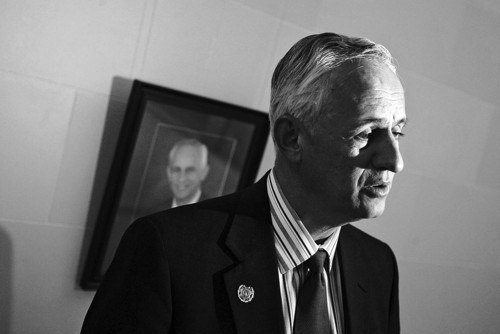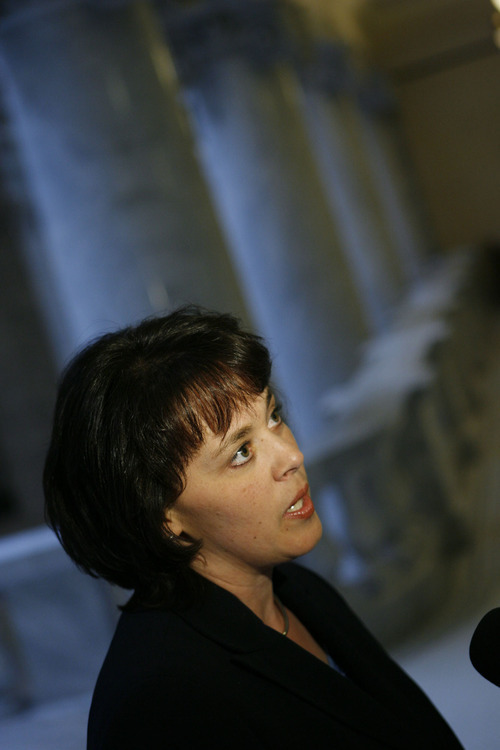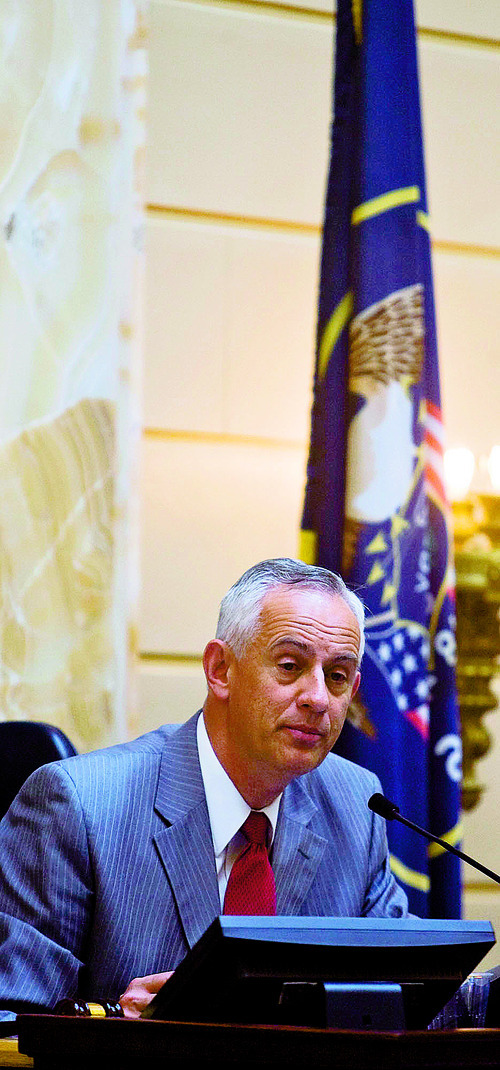This is an archived article that was published on sltrib.com in 2011, and information in the article may be outdated. It is provided only for personal research purposes and may not be reprinted.
State officials are receiving petitions with thousands of signatures, as well as telephone calls and letters, protesting a legislative directive to close state-controlled liquor stores in the name of saving $2.2 million.
On Tuesday, state Senate President Michael Waddoups, R-Taylorsville, discussed the issue in a closed meeting with the governor's budget director, Ron Bigelow; Sen. Ben McAdams, D-Salt Lake City; and House Speaker Becky Lockhart, R-Provo, whose districts include stores targeted for closure.
Afterward, Lockhart said the Legislature has allocated $100,000 to hire a consultant to find efficiencies in the Utah Department of Alcoholic Beverage Control (DABC), which could be one way to free up money to keep the stores open. The allotment comes on top of a yearlong legislative audit completed last year, which specifically singled out stores in Provo and Orem that could be shuttered in a state that, by far, already has the fewest number of outlets per resident of any of the eight states where liquor is sold at state-controlled stores.
Lockhart said the audit looked at the department as a whole and wasn't "comprehensive" in analyzing all the stores that could close.
Waddoups said he's getting calls from consumers protesting the planned closure of the Salt Lake City store in the Avenues neighborhood, which they say would force them to drive elsewhere rather than walking to their neighborhood outlet.
He said asking commercial landlords to lower rents and perhaps raising the price of liquor might help rescue some of the other targeted stores.
But McAdams said he's hopeful that the state will find additional money to keep open profitable stores and avert layoffs.
"Certainly, more efficiencies can be found, but I believe that the cuts to the department were much too deep."
Lawmakers have slashed the liquor department's budget by $2.2 million, forcing the planned closure of 10 liquor stores, which collectively had annual profits of $10 million last year. The cuts were some of the deepest among all state agencies.
Last week, a store was closed at 1457 S. Main St. in Salt Lake City, costing seven employees their jobs, and the other stores could be shuttered by July 1. More than 100 employees are expected to lose their jobs as a result of the closings.
The legislative budget committee approving the cuts to make up for shortages in the state budget pointed to the auditor's report, which said stores within a few miles of larger outlets could be closed to save money. Consumers, in turn, "would simply start shopping at the nearby store," auditors said in the May 2010 analysis.
But earlier this week, market analyst David Livingston of DJL Research in Wisconsin said it's unlikely that all consumers will adjust to the closures. A more likely result will be a decline in alcohol sales, which put $100 million into state and local treasuries last year.
"When a liquor store near someone's home is closed, you've given that person some discouragement from drinking," he said. "Maybe profits will go up at other stores, which could make up for the decline in sales, but without a comprehensive market analysis, the state is taking a risk.
"This certainly will be an experiment."
Livingston said that rather than calculating mileage between stores, auditors should have taken into account natural barriers such as freeways between stores and driving time that consumers would face before determining whether outlets should be shuttered.
Auditors took a different tack, looking at mileage in store consolidations. They specifically singled out for closure stores in St. George, Provo and Orem, which are within a few miles of larger liquor outlets.
Many consumers and restaurant owners have complained to lawmakers and others, saying that if stores close, congested streets and crowded freeways would turn what seems like a short drive to another liquor outlet into an expensive, long commute.
Jeff Weissgerber, managing partner with Outback Steakhouse, said in a letter to the DABC that it will be a hardship to drive to neighboring communities if the Provo and Orem stores close.
"It is already a difficult drive for us to buy liquor for our [Orem] store. Traffic is terrible, the freeway is under construction and the price of gas is very high. I can't image having to drive to either Pleasant Grove or Springville with $3,000 worth of liquor in the back of my pickup."
Ivins resident Rick Dunn wrote that if the smaller St. George store closes, congestion would make the drive time about equal when commuting to the larger downtown store or traveling across the Nevada state line into Mesquite to purchase liquor. In addition, Nevada doesn't have the 86 percent markup on liquor that Utah imposes.
The letters were obtained by The Salt Lake Tribune under the Government Records Access and Management Act (GRAMA).
Liquor stores that could close
kw=92
Salt Lake City • 402 E. Sixth Ave., $4 million in sales; 1615 Foothill Blvd., $3.7 million.
Midvale • 7598 S. Main St., $516,000.
South Salt Lake • 63 E. Miller Ave., $2.5 million.
Orem • 1688 N. State St., $3.7 million.
Provo • 166 S. Freedom Ave., $5.9 million.
Park City • 460 Swede Alley, $1.3 million.
St. George • 929 W. Sunset Blvd., $2.7 million.
Spanish Fork • 51 W. 100 North, $606,000.
Springville • 685 S. Main St., $790,000.
Source: Utah Department of Alcoholic Beverage Control







